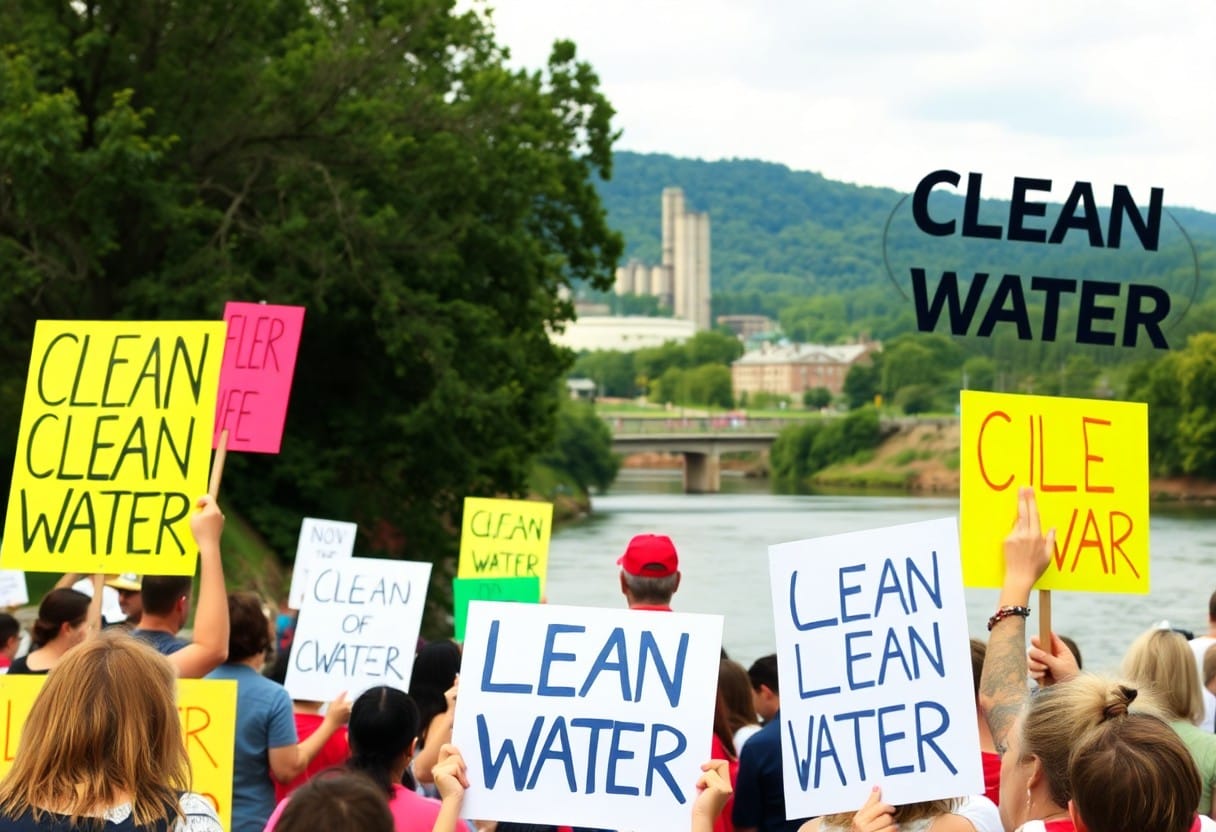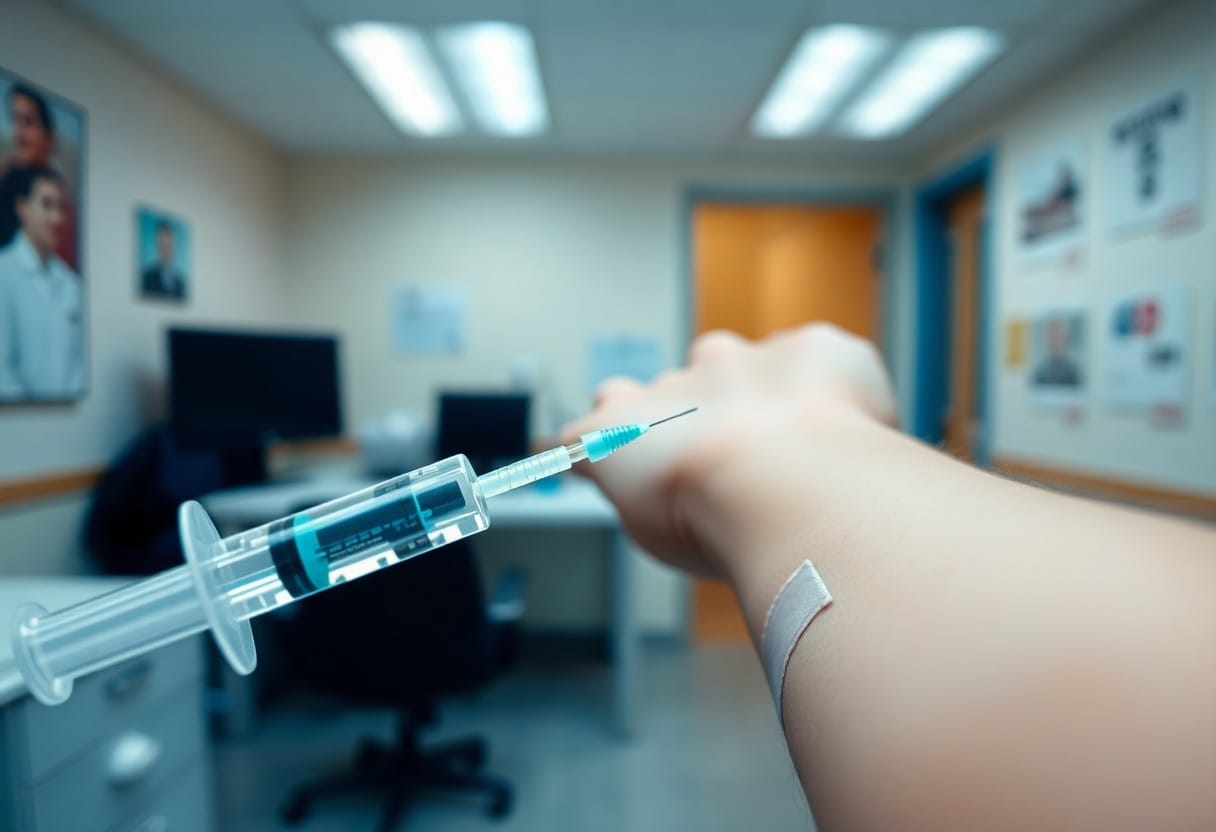Most people are unaware that PFAS (per- and polyfluoroalkyl substances) are often found in cosmetics and personal care products you use daily. These chemicals, linked to various health risks, have sparked a wave of emerging lawsuits against beauty brands. As you navigate your cosmetic choices, it’s important to stay informed about these legal actions that may impact the products on your vanity. This post will outline the key lawsuits to watch and help you make safer choices for your health and wellbeing.
Understanding PFAS
As you navigate the world of cosmetics, it’s important to understand what PFAS are and why they matter. PFAS, or per- and polyfluoroalkyl substances, are a group of man-made chemicals that have gained attention due to their persistence in the environment and potential health risks. These chemicals are used in various applications, including cosmetic products, where they can affect your health and well-being. Awareness of PFAS can empower you to make informed choices about the products you use on your skin.
What are PFAS?
After years of widespread use in various industries, PFAS have come under scrutiny due to their unique chemical structure, which makes them resistant to degradation. This characteristic allows them to persist in the environment, accumulating in human and animal bodies. Research has linked PFAS exposure to several health issues, including cancer and hormonal disruptions, making it an important topic in personal care and cosmetic safety.
Sources of PFAS in Cosmetics
After researching your favorite cosmetic products, you might be surprised to find that PFAS are commonly used in many formulations. These substances can be found in items like foundation, mascara, hair sprays, and sunscreens, often included for their properties like moisture resistance and durability. Understanding the presence of PFAS can help you assess the safety of your cosmetic choices.
Indeed, PFAS are often utilized in cosmetics to enhance performance and provide water and smudge resistance, which might seem beneficial at first glance. However, these chemicals can pose significant health risks due to their ability to accumulate in your body over time. Common products, such as long-lasting makeup and waterproof sunscreens, frequently contain PFAS, making it imperative to scrutinize ingredient labels. By being aware of the sources of PFAS in cosmetics, you can better protect your health and make safer choices for your skin.
Health Implications of PFAS Exposure
Assuming you are using cosmetics, it’s important to understand the potential health implications of PFAS exposure. These chemicals have been associated with various health concerns, including hormonal disruption, immune system effects, and increased cancer risk. Long-term exposure may lead to serious health challenges, underscoring the need for increased awareness and scrutiny of the products you use daily.
Potential Risks to Consumers
Implications of PFAS in cosmetics may pose significant risks to consumers. Studies suggest that frequent use of products containing these chemicals can potentially lead to adverse health effects over time, particularly for vulnerable populations such as pregnant women and children. Being aware of ingredient labels and opting for PFAS-free options can mitigate your exposure and safeguard your health.
Regulatory Perspectives
One major aspect to consider is the evolving regulatory landscape surrounding PFAS in cosmetics. As awareness of these chemicals’ dangers grows, regulatory bodies are increasingly scrutinizing their presence in consumer products. You may find that new regulations emerge, leading to stricter limits on PFAS usage in cosmetics, making it important to stay informed about the latest legal developments to protect yourself.
In addition, regulatory agencies like the U.S. Environmental Protection Agency (EPA) are actively working to assess and manage the risks associated with PFAS. This involves establishing safe drinking water standards and promoting research on the long-term health effects of exposure. Your awareness of these regulations can empower you to make informed choices, potentially influencing the cosmetics industry to prioritize safer, PFAS-free formulations for consumers.
Current Legal Landscape
It is vital to understand the evolving legal landscape surrounding PFAS in cosmetics, as regulatory scrutiny intensifies. Increasingly, both state and federal agencies are pursuing stricter guidelines to address the presence of these chemicals in personal care products. With consumers becoming more aware of potential health risks, companies are being held accountable for transparency and safety in their formulations. Regulatory frameworks are adapting to ensure that cosmetics containing PFAS are properly labeled and evaluated for safety, prompting significant changes in the industry.
Key Lawsuits Filed
Any major legal actions have emerged against cosmetic companies accused of misleading consumers regarding PFAS content. For instance, lawsuits highlight the failure to disclose the presence of these harmful substances, leading customers to unknowingly use products linked to severe health risks. These lawsuits focus on issues surrounding consumer safety, potential fraud, and the responsibility companies have to provide safe, transparent products. With the spotlight on PFAS, these legal challenges signal a pivotal shift in the cosmetics industry’s approach to chemical safety.
Outcomes and Impacts
To assess the broader implications of these lawsuits, it is imperative to consider potential outcomes and their impact on the cosmetics industry. Legal resolutions could lead to stricter regulations and enforcement, ultimately compelling brands to reformulate products or enhance labeling practices. Additionally, the rising costs of litigation may push companies to invest in safer alternatives, benefiting both consumers and the environment.
Hence, as these lawsuits unfold, the implications for consumer safety and product transparency regarding PFAS are profound. You may witness an increase in reformulated products that prioritize safety, ensuring that your cosmetics do not contain harmful substances. Moreover, the heightened awareness surrounding PFAS could lead to changes in market demand, prompting companies to innovate and adopt cleaner practices. As these legal challenges continue, you can expect a positive trend towards safer cosmetic options that protect your health and well-being.
Future Regulatory Trends
Unlike traditional regulations, emerging laws concerning PFAS in cosmetics are becoming increasingly stringent as awareness grows around their environmental and health impacts. You may witness a shift towards more comprehensive regulations that not only mandate specific disclosures but also require manufacturers to phase out hazardous substances in their formulations.
Anticipated Legislation
The trend toward strengthening legislation surrounding PFAS in cosmetics suggests that more states may soon adopt bans or restrictions on these chemicals. As public concern escalates, you could see regulations that not only limit PFAS usage but also require manufacturers to provide transparent labeling on their products.
Industry Responses
After recognizing the growing scrutiny, many companies within the cosmetics sector are taking proactive measures to reformulate their products. You may find that brands are investing in R&D to create safer alternatives and are increasingly transparent about ingredient sourcing in order to earn back consumer trust.
Indeed, the pressure from consumers and regulators has prompted a significant shift in how companies address PFAS issues. As you engage with beauty products, look for brands that are adopting sustainable practices and prioritizing chemical safety. This not only reflects their commitment to public health but also highlights a positive trend toward innovation in safer formulations, making it easier for you to make informed choices.

Consumer Awareness and Advocacy
Keep informed about the ongoing developments regarding PFAS in cosmetics. As awareness grows, consumers like you can advocate for safer products and demand transparency from brands. Understanding the implications of these chemicals will empower you to make healthier choices for your skin and overall well-being.
Educating the Public
Against misinformation, educating yourself and others about the risks associated with PFAS in cosmetics is vital. Share reliable information through social media platforms and community discussions to help raise awareness. By becoming informed advocates, you can influence positive changes in product formulations, ultimately benefitting all consumers.
Resources for Safe Cosmetics
Before purchasing your next cosmetic product, explore reliable resources that help you identify safe options free from harmful chemicals like PFAS. Numerous organizations offer extensive databases that allow you to check product safety ratings and ingredient lists.
Consumer access to reputable databases like the Environmental Working Group (EWG) or Think Dirty app puts vital information in your hands, enabling you to make informed decisions. You have the power to seek out products without hazardous chemicals, thereby protecting your health and the environment. By utilizing these resources, you can confidently choose cosmetics that are both safe and effective, contributing to a larger movement for consumer safety.
Summing up
Upon reflecting, it’s clear that the rising lawsuits related to PFAS in cosmetics present a significant concern for you as a consumer. Staying informed about these legal developments will empower you to make educated choices regarding the products you use. Awareness of potential health risks and the ongoing regulatory evolution can guide your decisions in favor of safer alternatives, ultimately contributing to your well-being and that of the environment. Staying vigilant about these emerging issues will help you navigate the complex landscape of cosmetic safety with confidence.



















